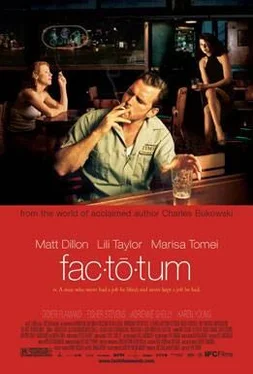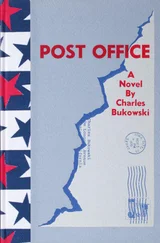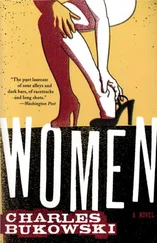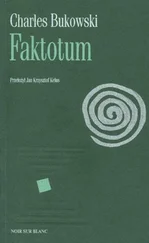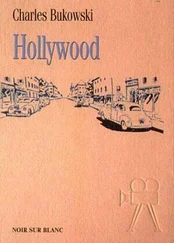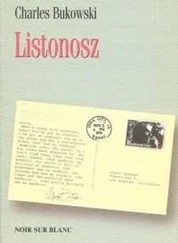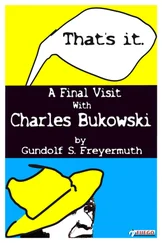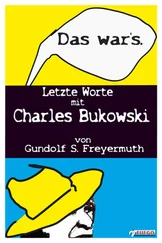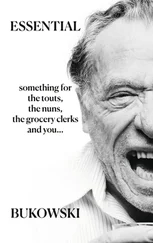Charles Bukowski - Factotum
Здесь есть возможность читать онлайн «Charles Bukowski - Factotum» весь текст электронной книги совершенно бесплатно (целиком полную версию без сокращений). В некоторых случаях можно слушать аудио, скачать через торрент в формате fb2 и присутствует краткое содержание. Жанр: Современная проза, на английском языке. Описание произведения, (предисловие) а так же отзывы посетителей доступны на портале библиотеки ЛибКат.
- Название:Factotum
- Автор:
- Жанр:
- Год:неизвестен
- ISBN:нет данных
- Рейтинг книги:4 / 5. Голосов: 2
-
Избранное:Добавить в избранное
- Отзывы:
-
Ваша оценка:
- 80
- 1
- 2
- 3
- 4
- 5
Factotum: краткое содержание, описание и аннотация
Предлагаем к чтению аннотацию, описание, краткое содержание или предисловие (зависит от того, что написал сам автор книги «Factotum»). Если вы не нашли необходимую информацию о книге — напишите в комментариях, мы постараемся отыскать её.
Factotum — читать онлайн бесплатно полную книгу (весь текст) целиком
Ниже представлен текст книги, разбитый по страницам. Система сохранения места последней прочитанной страницы, позволяет с удобством читать онлайн бесплатно книгу «Factotum», без необходимости каждый раз заново искать на чём Вы остановились. Поставьте закладку, и сможете в любой момент перейти на страницу, на которой закончили чтение.
Интервал:
Закладка:
"You have a real sense of humor, Mrs. Farrington."
"The security guard couldn't get you to let go of Mr. Pelvington. You tore his coat. It was only after we called the regular police that you relented."
"I presume I'm terminated?"
"You have presumed correctly, Mr. Chinaski."
I walked off behind a stack of crates. When Mrs. Farrington wasn't looking I cut for the employee's cafeteria. I still had my food card. I could get one last good meal. The stuff was nearly as good as what they cooked for the guests upstairs, plus they gave the help more of it. Clutching my food card I walked into the cafeteria, picked up a tray, a knife and fork, a cup and some paper napkins. I walked up to the food counter. Then I looked up. Tacked to the wall behind the counter was a piece of white cardboard covered with a large crude scrawl:
DON'T GIVE ANY FOOD TO HENRY CHINASKI
I put the tray back unnoticed. I walked out of the cafeteria. I walked along the loading dock, then I jumped into the alley. Coming toward me was another bum. "Got a smoke, buddy?" he asked. "Yeah." I took out two, gave him one, took one myself. I lit him up, then I lit myself up. He moved east and I moved west.
86
The Farm Labor Market was at Fifth and San Pedro Streets. You reported at 5 a.m. It was still dark when I got there. Men were sitting and standing around, rolling cigarettes and talking quietly. All such places always have the same smell-the smell of stale sweat, urine, and cheap wine.
The day before I had helped Jan move in with a fat real estate operator who lived on Kingsley Drive. I'd stood back out of sight in the hall and watched him kiss her; then they'd gone into his apartment together and the door had closed. I had walked back down the street alone noticing for the first time the pieces of blown paper and accumulated trash that littered the street. We'd been evicted from our apartment. I had $2.08. Jan promised me she'd be waiting when my luck changed but I hardly believed that. The real estate operator's name was Jim Bemis, he had an office on Alvarado Street and plenty of cash. "I hate it when he fucks me," Jan had said. She was now probably saying the same thing about me to him.
Oranges and tomatoes were piled in several crates and apparently were free. I took an orange, bit into the skin and sucked on it. I had exhausted my unemployment benefits since leaving the Sans Hotel.
A guy about forty walked up to me. His hair looked dyed, in fact it didn't look like human hair but more like thread. The hard overhead light shone down on him. He had brown moles on his face, mostly clustered around his mouth. One or two black hairs grew out of each one.
"How you doing?" he asked.
"O.K."
"How'd you like a blow job?"
"No, I don't think so."
"I'm hot, man, I'm excited. I really do it good."
"Listen, I'm sorry, I'm not in the mood."
He walked off angrily. I looked about the large room. There were fifty men waiting. There were ten or twelve state employment clerks sitting at their desks or walking around. They smoked cigarettes and looked more worried than the bums. The clerks were separated from the bums by a heavy wire mesh fence that went from floor to ceiling. Somebody had painted it yellow. It was a very indifferent yellow.
When a clerk had to make a transaction with a bum he unlocked and slid open a small glass window in the wire. When the paperwork was taken care of the clerk would slide the glass window shut, lock it from the inside, and each time it happened, hope seemed to vanish. We all came awake when the window would slide open, any man's chance was our chance, but when it closed, hope evaporated. Then we had each other to look at.
Along the back wall, behind the yellow screen and behind the clerks, were six blackboards. There was white chalk and erasers, just like in grammar school. Five of the blackboards were washed clean, although it was possible to see the ghost of previous messages, of jobs long filled and now lost forever as far as we were concerned.
There was a message on the sixth blackboard:
TOMATO PICKERS WANTED IN BAKERSFIELD
I had thought that machines had put the tomato pickers out of work. Yet, there it was. Humans apparently were less expensive than machines. And machines broke down. Ah.
I looked around the waiting room-there were no Orientals, no Jews, almost no blacks. Most of the bums were poor whites or Chicano. The one or two blacks were already drunk on wine.
Now one of the clerks stood up. He was a big man with a beer gut. What you noticed was his yellow shirt with vertical black stripes. The shirt was overstarched, and he wore armbands-to hold up his sleeves like in photographs taken in the 90's. He walked over and unlocked the glass window in the yellow screen:
"All right! There's a truck in back loading up for Bakersfield!"
He slid the window shut, locked it, sat down at his desk and lit a cigarette.
For a moment nobody moved. Then one by one those sitting on the benches began to get up and stretch, their faces expressionless. The men who had been standing dropped their cigarettes on the floor and put them out carefully with the soles of their shoes. Then a slow general exodus began; everyone filed out a side door into a fenced yard.
The sun was coming up. We really looked at each other for the first time. A few men grinned at the sight of a familiar face.
We stood in a line, pushing our way toward the back of the truck, the sun coming up. It was time to get going. We were climbing into a World War II army truck with a high canvas roof, torn. We moved forward, pushing rudely, but at the same time trying to be at least half-polite. Then I got tired of the elbows, I stepped back.
The truck's capacity was admirable. The big Mexican foreman stood to one side at the back of the truck, waving them on in, "All right, all right, let's go, let's go…"
The men moved forward slowly, as if into the mouth of the whale.
Through the side of the truck I could see the faces; they were talking quietly and smiling. At the same time I disliked them and felt lonely. Then I decided I could handle tomatoes; I decided to get in. Someone banged into me from behind. It was a fat Mexican woman and she seemed quite emotional. I took her by the hips and boosted her. She was very heavy. She was hard to manage. Finally I got hold of something; it seemed one of my hands had slipped into the deepest recess of her crotch. I boosted her in. Then I reached up to get a grip and pull myself in. I was the last one. The Mexican foreman put his foot on my hand. "No," he said, "we've got enough."
The truck's engine started, stalled, stopped. The driver hit it again. It started and they rolled off.
87
Workmen For Industry was located right on the edge of skid row. The bums were better dressed, younger, but just as listless. They sat around on the window ledges, hunched forward, getting warm in the sun and drinking the free coffee that W.F.I. offered. There was no cream and sugar, but it was free. There was no wire partition separating us from the clerks. The telephones rang more often and the clerks were much more relaxed than at the Farm Labor Market.
I walked up to the counter and was given a card and a pen anchored by a chain. "Fill it out," said the clerk, a nice looking Mexican boy who tried to hide his warmth behind a professional manner.
I began to fill out the card. After address and phone number I wrote: "none." Then after education and work abilities I wrote: "two years L.A. City College. Journalism and Fine Arts."
Then I told the clerk, "I ruined this card. Could I have another?"
He gave me one. I wrote instead: "Graduate, L.A. High School. Shipping clerk, warehouseman, laborer. Some typing."
I handed the card back.
Читать дальшеИнтервал:
Закладка:
Похожие книги на «Factotum»
Представляем Вашему вниманию похожие книги на «Factotum» списком для выбора. Мы отобрали схожую по названию и смыслу литературу в надежде предоставить читателям больше вариантов отыскать новые, интересные, ещё непрочитанные произведения.
Обсуждение, отзывы о книге «Factotum» и просто собственные мнения читателей. Оставьте ваши комментарии, напишите, что Вы думаете о произведении, его смысле или главных героях. Укажите что конкретно понравилось, а что нет, и почему Вы так считаете.
